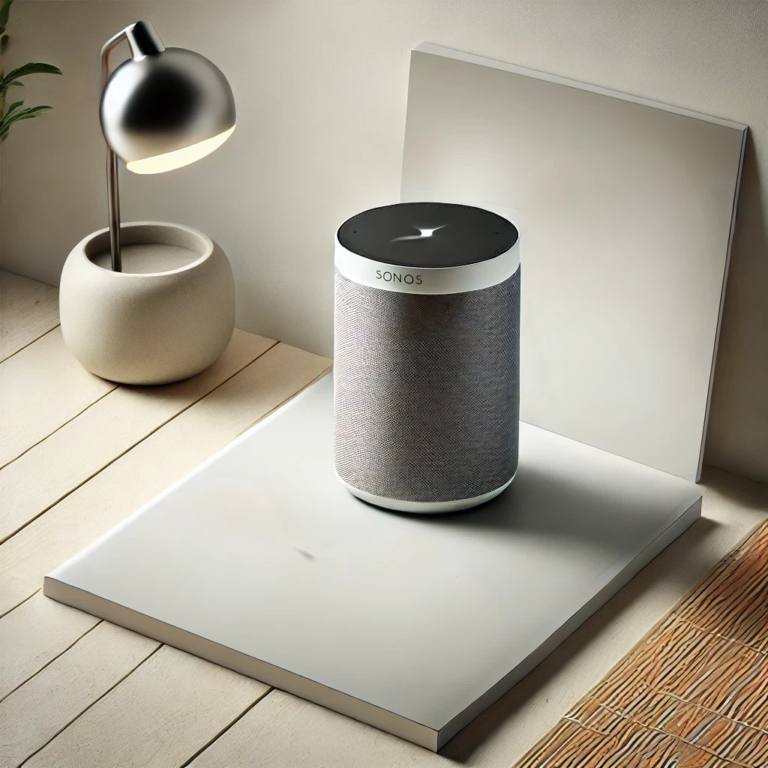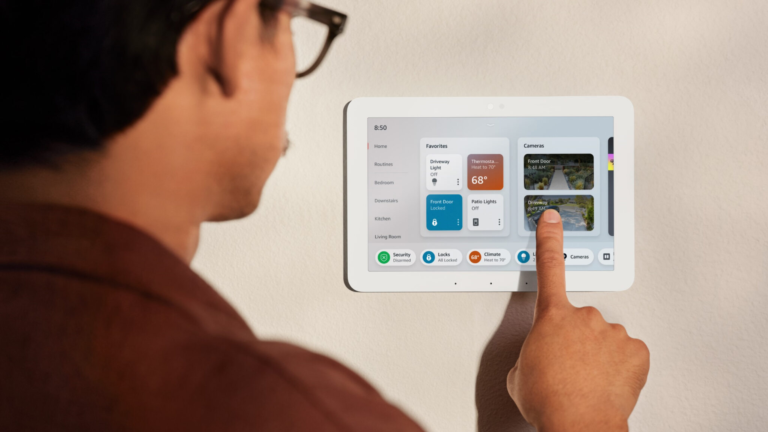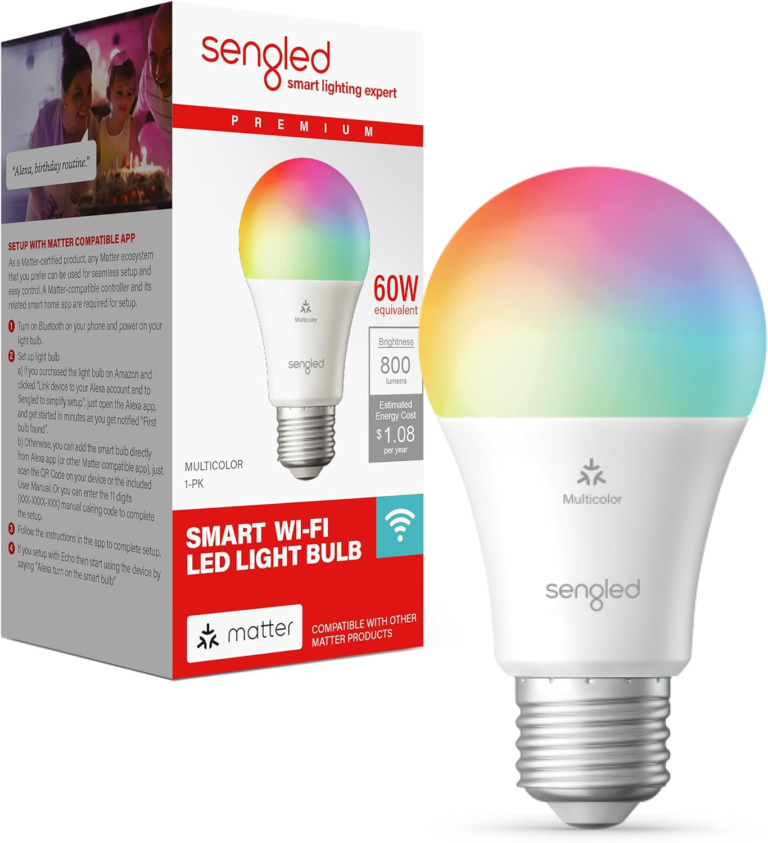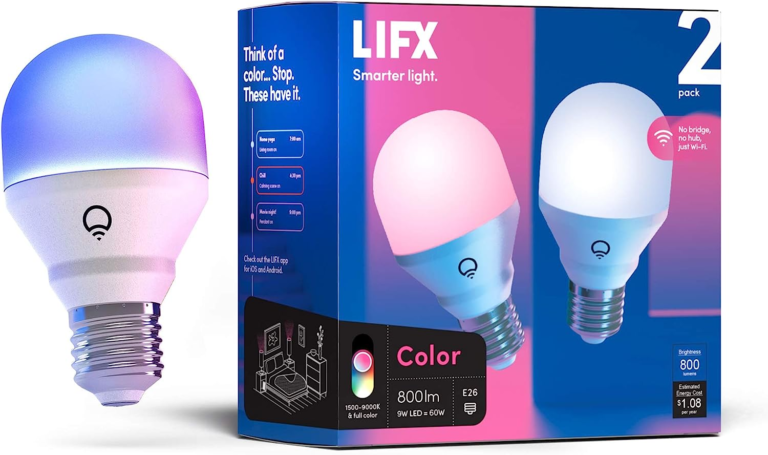The Ultimate Guide to Selecting Smart Locks for Different Doors
When it comes to keeping your home safe, all doors aren’t the same. Whether it’s your front door, a patio slider, or your French doors, picking the right smart lock is super important. This guide will take you through everything you need to know to make a good choice, from the specific needs of different doors to the best recommendations and some tips for installation.
Understanding Smart Locks

What Are Smart Locks? Smart locks are advanced electronic locking systems that enable you to conveniently lock and unlock your doors using various methods, including keypads, fingerprint sensors, or smartphone apps. These innovative locks not only offer enhanced security but also provide added convenience compared to traditional locks.
Benefits of Smart Locks:
- Enhanced Security: Smart locks often come with advanced features like tamper alerts and the ability to re-key your lock without a locksmith.
- Convenience: Keyless entry means no more fumbling with keys or worrying about losing them.
- Remote Access: Many smart locks allow you to control your lock from anywhere using a smartphone app, making it easy to manage access to your home.
Key Factors to Consider for Different Doors
Door Material: The type of door you have is crucial when picking a smart lock. Different materials, such as wood, metal, glass, and composite doors, have unique needs.
- Wooden Doors: These are the most common and generally compatible with most smart locks. Ensure the lock’s hardware can securely attach to the wood without causing any damage.
- Metal Doors: Metal doors might need smart locks with stronger mounting hardware. To get the job done right, you might even need some additional drilling or specialized tools.
- Glass Doors: Often used for patio or sliding doors, glass doors need smart locks that can be installed without compromising the glass. Consider locks that don’t require heavy-duty drilling.
- Composite Doors: These doors blend materials like wood, PVC, and insulation. You’ll want to choose smart locks designed to handle varying densities and materials effectively.
Door Thickness: Most smart locks are made to fit standard door thicknesses, which are usually between 1-3/8″ and 1-3/4″. If your door is thicker or thinner than average, make sure to check the lock specifications or contact the manufacturer to confirm compatibility.
Lock Type: The type of smart lock you choose should align with your door and your security needs.
- Deadbolts: These are perfect for exterior doors, offering strong security and peace of mind.
- Lever Locks: These are often used for interior doors, combining the handle and lock mechanism for convenience.
- Mortise Locks: Typically found in older buildings, these locks need a different installation approach but offer enhanced security.
Smart Locks for Exterior Doors
When choosing a smart lock for your exterior door, security is the most important factor. Your exterior doors are your first line of defence, so choose a tamper-proof, weatherproof lock, and compatible with your home automation system.
- Weather Resistance: Look for smart locks that are specifically designed to withstand extreme weather conditions, be it scorching heat, heavy rain, or freezing temperatures. Features like water resistance and robust construction materials are crucial.
- Tamper Alerts: Many high-quality smart locks come with tamper alerts, notifying you if someone tries to force or tamper with the lock.
Top Recommendations:
- Kwikset SmartCode 260: Known for its reliability and ease of use, this lock offers keyless entry and customizable user codes, making it a great choice for families. Its SmartKey security technology provides an extra layer of protection against unauthorized access.

260 SmartCode Traditional Electronic Deadbolt
- Schlage Encode: This model features built-in Wi-Fi, allowing you to control and monitor your lock from anywhere using a smartphone app. It’s a bit pricier, but the convenience of remote access and high security make it worth considering.
- Yale Assure Lock SL: This lock is stylish and functional, with a sleek touchscreen keypad and compatibility with various smart home systems. It’s also easy to install and offers robust security features.
Pro Tips:
- Make sure to regularly update the user codes and track who has access to your home.
- Consider integrating your smart lock with a comprehensive home security system for added protection.
Smart Locks for Interior Doors

Privacy vs. Security: While you might not need a high level of security for your interior doors, having the right smart lock can really boost your home’s convenience and privacy. Think about your bedroom, bathroom, or home office – each space has unique needs.
- Ease of Use: You want something simple and quick to use for interior doors. Imagine unlocking your home office door quickly; a smart lock with a quick-release mechanism can be a lifesaver.
- Aesthetic Considerations: Since these locks are part of your living space, they should look good, too. Many smart locks come in various finishes and styles, so you can find something that perfectly matches your home décor.
Top Recommendations:
- August Smart Lock: This option is great for interior doors like home offices or shared living spaces. It’s super easy to control access, so you can give guests or roommates temporary codes without hassle.
- Schlage senses: Its sleek design makes it ideal for bedrooms and bathrooms. It offers the flexibility of keyless entry along with a traditional key option.
- Yale Assure Lever: This smart lever lock is perfect for rooms where quick and easy access is needed, such as bedrooms or home offices. It’s simple to install and offers reliable keyless convenience.
Pro Tips:
- If you’re using smart locks on interior doors, consider integrating them with your home’s voice assistant. This way, you can lock and unlock doors with simple voice commands.
- Make it a habit to regularly update access codes, especially if you have frequent visitors or roommates. It’s a simple way to maintain privacy and security.
Smart Locks for Sliding Doors
Special Considerations: Sliding doors have unique requirements that set them apart from traditional hinged doors. When choosing a smart lock for a sliding door, you need to think about lock placement, ease of use, and maintaining the door’s integrity.
- Ease of Installation: Sliding doors often need a lock that doesn’t require extensive drilling or complicated installation. Look for smart locks specifically designed for sliding doors to avoid any installation headaches.
- Aesthetic and Functionality: The lock should blend well with your sliding door and function smoothly without obstructing the door’s operation.
Top Recommendations:
- Yale Smart Lock for Sliding Doors: Yale offers smart lock solutions tailored for sliding doors, ensuring security and ease of use. These locks are designed to integrate seamlessly with the door’s operation.
- Lockly Secure Pro: This smart lock is a great choice for sliding doors. It offers fingerprint access and a touch keypad. It’s easy to install and provides a high level of security without compromising the door’s aesthetic.
Pro Tips:
- Choose a weather-resistant smart lock, especially for exterior sliding doors. This ensures longevity and reliable performance, no matter the weather conditions.
- Consider smart locks that offer multiple access methods, like fingerprint recognition and keypads, for added convenience and flexibility.
Smart Locks for French Doors
French doors add a touch of elegance to any home, but securing them can be a bit tricky. When choosing the right smart lock, you want something that ensures both security and style.
Understanding the Needs: French doors typically consist of two doors, one of which is often stationary (the inactive door) and the other operating (the active door). The ideal smart lock should secure both doors effectively, especially at the meeting point.
Top Recommendations:
- Yale Assure Lock for French Doors: I’ve found that Yale’s smart locks are perfect for double doors. They offer keyless entry and integrate smoothly with your smart home system, making it both a secure and stylish choice.
- Schlage Connect Smart Deadbolt: This lock not only offers robust security but also features a sleek design that complements the aesthetic of French doors. With keyless entry and a touchscreen keypad, it provides both convenience and peace of mind.
Pro Tips:
- Multi-Point Locking Systems: French doors benefit from multi-point locking systems that secure the door at several points, enhancing security.
- Weather Resistance: Since French doors often lead to patios or gardens, ensure your smart lock is weather-resistant to withstand the elements.
Installation and Setup
Installing a smart lock might seem daunting, but it can be quite straightforward if you follow the right steps. Whether you’re a DIY enthusiast or prefer professional help, here’s what you need to know.
DIY vs. Professional Installation: Deciding whether to install the lock yourself or hire a professional depends on your comfort level and the complexity of the lock. Many smart locks are designed for easy DIY installation, but some models might require a bit more expertise.
DIY Installation:
Tools You’ll Need: Most smart locks have a template and all the necessary hardware. You’ll typically need a screwdriver, a drill (if new holes are needed), and a measuring tape.
Steps to Install:
- Remove the Old Lock: Remove the existing lock from your door.
- Prepare the Door: Ensure the door is ready for the new lock by checking hole sizes and alignment.
- Install the New Lock: Follow the manufacturer’s instructions to fit the new lock in place.
- Set Up the Smart Features: Once the lock is physically installed, set up the electronic features using the provided app or interface.
Professional Installation:
Initial Setup: After installation, you must configure your smart lock. This typically involves downloading an app, connecting the lock to your Wi-Fi or Bluetooth, and setting up user codes or fingerprint profiles.
Pro Tips:
- When to Hire a Pro: If you’re uncomfortable with tools or if your door requires significant modifications, hiring a professional can save time and ensure the job is done correctly.
- Cost Considerations: While professional installation adds to the cost, it can provide peace of mind, especially for more complex systems.
- Keep It Simple: Start with basic settings and add more features as you get comfortable with the lock.
- Test Thoroughly: Make sure to test the lock multiple times to ensure everything works smoothly before relying on it fully.
Pros and Cons of Smart Locks for Different Doors
Smart locks offer numerous advantages, but they also come with some drawbacks. Let’s break down the pros and cons, focusing on how they apply to different types of doors.
Pros:
- Convenience: One of the biggest benefits of smart locks is keyless entry. You can unlock your door with a code, smartphone, or even your fingerprint, which is especially handy when your hands are full or when you’re in a hurry.
- Enhanced Security: Smart locks often come with features like tamper alerts, auto-locking, and the ability to re-key without a locksmith. These features can significantly boost your home’s security.
- Customizable Access: You can create multiple user codes for family members, friends, or service providers. This makes it easy to control who can access your home and when.
- Remote Control: Many smart locks allow you to lock or unlock your door remotely using a smartphone app, providing peace of mind while away from home.
Cons:
- Battery Dependency: Most smart locks are battery-operated, which means you’ll need to keep an eye on battery levels and replace them periodically. If the batteries die unexpectedly, you might find yourself locked out.
- Installation Challenges: While many smart locks are designed for easy installation, some models can be tricky to install, especially on non-standard doors or older homes.
- Cost: Smart locks are generally more expensive than traditional locks, both in terms of initial purchase and potential installation costs.
- Technical Issues: Like any technology, smart locks can experience glitches or connectivity issues. It’s important to choose a reliable model and keep the software updated.
For Different Doors:
- Exterior Doors: The pros of enhanced security and remote control are particularly valuable for exterior doors. However, the cons of battery dependency and higher costs are also more significant.
- Interior Doors: Convenience and customizable access are big pluses for interior doors, especially for home offices or shared spaces. Installation challenges are usually minimal, but battery dependency still applies.
- Sliding and French Doors: These types of doors benefit from the added security and convenience of smart locks. However, finding a compatible lock and dealing with potential installation challenges are important considerations.
Choosing the right smart lock for your doors is an important decision that balances security, convenience, and style. By considering factors like door material, thickness, and specific needs for different types of doors, you can find the perfect smart lock to enhance your home’s security and ease of use.
FAQ
- How do smart locks handle power outages?
Most smart locks are battery-operated, so they will continue to function during a power outage. Ensure the batteries are regularly checked and replaced as needed. Some models also offer backup key access or can be powered temporarily with a 9V battery.
- Can I still use a traditional key with a smart lock?
Many smart locks include a traditional keyhole as a backup method of entry. This can be useful in case the electronic features fail or the batteries die unexpectedly.
- Do smart locks work on double doors?
Yes, certain smart locks are designed to work with double doors, like French doors. Look for models specifically labeled for use with double or French doors to ensure compatibility and proper functionality.
- Can I monitor who enters and exits my home with a smart lock?
Yes, many smart locks come with apps that log entries and exits, providing a history of who used the lock and when. This feature is particularly useful for monitoring access by family members, guests, or service providers.
- Are smart locks difficult to maintain?
Smart locks generally require minimal maintenance. Regularly check the batteries and replace them as needed. It’s also a good idea to clean the lock and keypad to ensure smooth operation.
- Can smart locks be used on gates or outdoor access points?
Some smart locks are designed for outdoor use and can be installed on gates or other outdoor access points. Ensure the lock is weather-resistant and suitable for exterior use.
- What happens if I forget my smart lock code?
Most smart locks have a way to reset or recover access if you forget your code. This might involve using a backup key, contacting the manufacturer for support, or using the lock’s app to reset the code.
- Do smart locks work with home security systems?
Many smart locks are compatible with home security systems, allowing you to integrate them into your overall home security setup. This can provide enhanced security features and more convenient control.
- Can multiple users manage a smart lock?
Yes, most smart locks allow multiple users to have access and manage the lock. This is useful for households with multiple members or for granting temporary access to guests or service providers.
- How do I choose the right smart lock for rental properties?
For rental properties, look for smart locks that offer temporary access codes and easy re-keying features. This allows you to change access between tenants without the need for physical key exchanges.

Dyson Pure Cool Review: The Smart Air Purifier You Need
It’s really important to keep the air we breathe at home clean and healthy, don’t you think? The Dyson Pure Cool smart air purifier is designed to ensure that the air in your home is of the highest quality. It uses advanced technology to remove impurities and keep the air fresh and clean. So, you…

Sonos One Review: The Ultimate Smart Speaker for Music Lovers
Sonos One is this amazing smart speaker that totally rocks! It’s designed to give you top-notch sound and play really nicely with all your smart home gadgets. Whether you’re a music buff or need a solid speaker, Sonos One is there to take your listening game to the next level. In my review, we’ll dig…

Google Nest Hub Review: Your Ultimate Smart Home Assistant
The Google Nest Hub is an advanced smart display incorporating Google Assistant and a user-friendly touchscreen interface. This innovative device seamlessly integrates with various smart home devices, allowing for comprehensive control and monitoring. In addition, it provides detailed and real-time weather updates and offers a wide array of entertainment options, making it an essential addition…

Review of the Amazon Echo Show 8: An Ideal Smart Display Solution for Your Home
The Amazon Echo Show 8 is a versatile smart display that combines the power of Alexa with a vibrant HD screen, making it an ideal addition to any modern home. Whether you want to control your smart home devices, make video calls, or enjoy multimedia content, the Echo Show 8 promises to deliver a seamless…

Sengled Smart Bulb Review: A Smart Choice for Your Home Lighting Needs
Smart lighting is essential to modern homes, providing convenience, energy savings, and enhanced ambiance. Sengled, a renowned name in the smart lighting industry, offers an impressive range of smart bulbs. The Sengled Smart Bulb promises to deliver quality, functionality, and affordability. But is it the right choice for your home? Why Choose Sengled Smart Bulb?…

LIFX A19 Smart LED Light Bulb Review: Is It the Right Choice for Your Home?
Introduction Smart lighting is really changing the way we think about home automation. LIFX, a company known for its innovative and high-quality products, is leading the charge in this space. Their flagship offering, the LIFX A19 Smart LED Light Bulb, promises to bring vibrant color, exceptional brightness, and smart functionality to your home. But is…






2 Comments
Comments are closed.